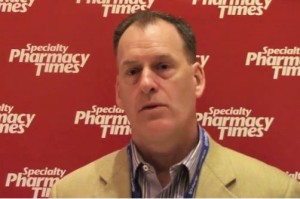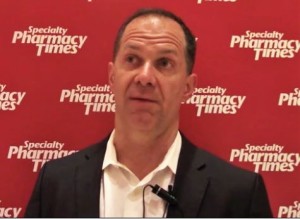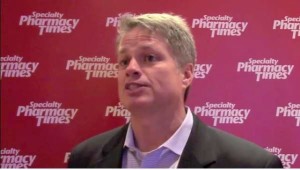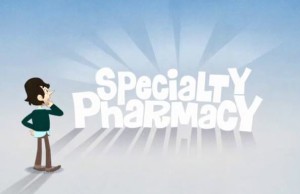- McKesson extends reach into oncology space with two acquisitions (drugstorenews.com)
McKesson announced...that it has signed definitive agreements to purchase Vantage Oncology, a leading national provider of radiation oncology, medical oncology and integrated cancer care, and Biologics, an oncology pharmacy services company, in a pair of transactions valued at $1.2 billion...Collectively, these acquisitions will increase McKesson’s specialty pharmaceutical distribution scale, oncology-focused pharmacy offerings, solutions for manufacturers and payers and scope of community-based oncology and practice management services available to providers and patients...Vantage will broaden the company’s scale in radiation oncology management services, adding more than 50 cancer centers across 13 states. Vantage operates a practice management model through joint ventures and shares profits with their partner physicians and hospitals...Biologics...specialty pharmacy model provides controlled dispensing channels, including rapid and traceable pharmaceutical delivery solutions, increased analytics, and services for oncology patients...
- Solving the Puzzle of High Cost Specialty Drugs (specialtypharmacytimes.com)
Jon Hamrick, executive vice president, Biotech and Specialty Services at Therigy LLC, discusses the implications of rising drug costs on specialty pharmacy.
- The Challenge of High Cost Drugs in Specialty Pharmacy (specialtypharmacytimes.com)
Michael Zeglinski, vice president of Specialty Pharmacy Operations at BriovaRx, discusses how expensive hepatitis C drugs have impacted the specialty landscape. (video)
- The Changing Landscape for Specialty Pharmacy Patients (specialtypharmacytimes.com)
Marc O'Connor, chief operating officer of Curant Health, discusses potential changes patients of specialty pharmacies may experience in the near future.
- Management Tools for Controlling Specialty Drug Costs (specialtypharmacytimes.com)
The increasing utilization and costs of specialty drugs will have a substantial impact on overall health care costs during the next decade...Pharmacy benefit manager tools that have successfully controlled costs in the traditional small-molecule drug categories will be critical to manage the increasing costs and requirements of the specialty drug category…
Financial Impact of Specialty Drugs: Current and Projected...by 2020, 9 of the 10 best-selling drugs (by revenue) will be specialty drugs...spending could reach $400 billion, or 9.1% of national health spending...Specialty benefit design and management tools employed by PBMs will also play a significant role in controlling specialty drug spending, as well as ensuring optimal patient care and support.
Specialty Benefit Design and Management...Specialty drugs frequently have unique shipping and storage needs, as a result specialty pharmacies are better equipped to procure, store, and dispense these treatments than traditional retail pharmacies. Furthermore, pharmacists and personnel at specialty pharmacies provide patient education and clinical support beyond the capabilities of a retail pharmacy...The tools in the PBM arsenal are critical to ensure appropriate care for patients needing specialty drugs while managing the often extraordinary costs.
Comprehensive management approaches that monitor and balance patient care outcomes and costs will help PBMs ensure that new, innovative medications are readily available and affordable to the patients who need them most.
- The Best and Worst Consequences of Rising Specialty Drug Costs (specialtypharmacytimes.com)
The meteoric rise in the cost of specialty drugs has been well-documented and appropriately lambasted, at least in some circumstances...Two consequences of the growing cost for specialty medications percolated to the top of my list when considering its ability to impact the specialty pharmaceutical industry...First is the arrival of the pharmaceutical manufacturers’ day at-risk...the deal between Harvard Pilgrim and Amgen for the PCSK9 inhibitor...Harvard Pilgrim will recoup additional rebates from Amgen if various patient groups taking Repatha do not achieve specific cholesterol targets...Given the need for improved alignment within the industry as a whole, this development is a good thing. If manufacturers and payers would allow them to do so, specialty pharmacies could serve as the primary conduit...that enable both parties to generate value from at-risk agreements...we will explore how this can be achieved.
- Leverage programs proven to improve adherence - Pharmacists and patient care coordinators employed by medication management providers and specialty pharmacies are perfectly suited for this task.
- Agree on data and outcomes - In order for manufacturers to accept some risk, there should be upfront agreement on financial and health outcomes. Top health outcomes should be close to the clinical trial results manufacturers tout themselves.
- Assign a near-neutral third-party for health outcomes metrics arbitration - Neither payers nor manufacturers can be the arbiters of the data by which at-risk agreements are adjudicated...In the world of specialty medications, the entity best suited to this task is the specialty pharmacy with validation from a clinical pharmacist.
Barriers to Access are not Good and Must be Broken Down...The second consequence applies to health care on a national level, but the pharmaceutical industry, inclusive of pharmacy benefit managers and payers, has the ability to do something about it...The barriers to treatment access, even preventative treatment, created by increasingly complex prior authorization processes and state budgets stretched to the breaking point, are causing patients to defer treatment...Investing in Access Solutions...new personnel specifically tasked with prior authorization assistance...will carry an arsenal of knowledge and experience that makes them the most suitable resource given the increasingly complex requirements for successful completion of prior authorization forms...
- McKesson introduces clinical programs platform (chaindrugreview.com)
McKesson Pharmacy Systems & Automation has released the McKesson Clinical Programs Solution, a new platform that enables pharmacists to build customized wellness programs...the Clinical Programs Solution also allows pharmacists to maintain vendor programs for patients with specific medical conditions and saves time and labor costs by automatically synchronizing the data of patients enrolled in a clinical program with McKesson’s EnterpriseRx pharmacy management system...The Clinical Programs Solution offers a wide range of program management capabilities, including a patient-centric view of a patient’s programs and information, real-time notification if a patient is eligible for a clinical program when a prescription is being filled with EnterpriseRx, and a central platform for pharmacies with multiple locations to manage all of their clinical programs.
- Improving Data Analytics for Payers in Specialty Pharmacy (specialtypharmacytimes.com)
David D'Altorio, PharmD, senior vice president of health services at MedImpact Healthcare Systems, discusses the benefits of MedImpact's iRx program.
- How Can Specialty Pharmacy Achieve the Goals of ACOs (specialtypharmacytimes.com)
National Association of Specialty Pharmacy (NASP) Executive Director James E. Smeeding, RPh, MBA, discusses the relationship between specialty pharmacies and accountable care organizations.
- Specialty pharmacy is a lucrative opportunity for community pharmacy (drugtopics.modernmedicine.com)
The traditional pharmacy business model is under siege as it faces challenges from healthcare reform and competition. As community pharmacies scramble to survive, the specialty pharmacy model offers a lucrative opportunity for growth...The key to success? You’ll need to understand and prepare for a wide variety of challenges on fronts ranging from accreditation to marketing. That’s the message from community pharmacists who are urging their colleagues to take advantage of the growth in specialty pharmacy.
- What is specialty pharmacy?....The definition is not clear cut...
- Here are common characteristics of specialty drugs: They’re pricey, sometimes even shockingly expensive...treat a rare and chronic illness...injectable or infused...Complex manufacturing is required...special requirements for storage and handling.
- Complex patient monitoring is required (eg, for compliance and side effects).
- Help available in specialty arena...a number of companies are working to give independent pharmacists a helping hand in the specialty pharmacy arena.
- Accreditation...It’s expensive, and it’s confusing...
- Marketing to physicians.
- Marketing to the public.
- Willingness to deal with issues like reimbursement rates and performance standards.
So why bother with all this? “There’s huge opportunity for growth,” Clark said, and a chance to provide high-quality care to patients who need it. “But we have growing pains,” he cautioned. “You’ve got to be patient.”








